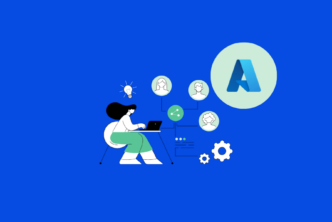Hiring Salesforce developers can be a game-changer for businesses looking to boost their customer relationship management. These pros bring specialized skills to the table, helping companies get the most out of their Salesforce investment. Finding the right Salesforce developer is key to maximizing your CRM’s potential and driving business growth.

We know the hiring process can be tricky, especially when it comes to technical roles. That’s why we’ve put together this guide to help you navigate the waters of recruiting top Salesforce talent. From pinpointing your exact needs to sourcing candidates and conducting interviews, we’ll walk you through each step.
Salesforce is always evolving, and so are the skills needed to work with it. We’ll show you how to spot developers who not only have the right technical chops, but also fit well with your team culture. Plus, we’ll share tips on keeping your new hires up-to-date in this fast-paced field.
Key Takeaways
- Define your project needs before starting the hiring process
- Look for developers with both technical skills and cultural fit
- Invest in ongoing training to keep your Salesforce team sharp
Hire Salesforce developers with YouTeam
Table of Contents
Understanding Salesforce Development
Salesforce development involves creating custom solutions within the Salesforce platform. We’ll explore the basics of Salesforce CRM, the roles developers play, and key skills needed for success in this field.
Basics of Salesforce CRM
Salesforce is a cloud-based customer relationship management (CRM) platform. It helps businesses manage customer data, track sales, and improve customer service.
The platform uses a unique programming language called Apex. This language is similar to Java and allows developers to create custom functionality.
Salesforce also has its own user interface framework called Lightning. This framework lets developers build responsive and dynamic web applications.
Roles of Salesforce Developers
Salesforce developers wear many hats. They create custom applications, automate business processes, and integrate Salesforce with other systems.
Some developers focus on building user interfaces using Visualforce or Lightning components. Others specialize in backend development, writing complex Apex code.
Many Salesforce developers also work on data migration and integration projects. They help businesses move their existing data into Salesforce or connect it with other software.
Key Skills for a Salesforce Developer
Strong problem-solving skills are a must for Salesforce developers. They need to understand business needs and translate them into technical solutions.
Proficiency in Apex and other Salesforce-specific technologies is crucial. This includes SOQL (Salesforce Object Query Language) and SOSL (Salesforce Object Search Language).
Knowledge of web technologies like HTML, CSS, and JavaScript is also important. These skills help in creating user-friendly interfaces and enhancing user experience.
Familiarity with agile development methods is beneficial. Many Salesforce projects use agile approaches to deliver value quickly and adapt to changing requirements.
Defining Your Requirements
Clear requirements are key to finding the right Salesforce developer. We’ll look at how to identify your business needs and specify the technical skills you want.
Identifying Business Needs
Start by listing your Salesforce goals. Do you need custom apps? Integration with other systems? Better reporting? Write these down.
Next, think about your timeline and budget. How soon do you need the work done? What can you afford to pay?
Consider your team structure, too. Will the developer work alone or with others? Do they need to manage projects?
Don’t forget about industry knowledge. Some businesses need developers who understand their field.
Specifying Technical Competencies
List the Salesforce skills you need. This might include:
- Apex coding
- Visualforce
- Lightning Web Components
- Data modeling
- API integrations
Think about certifications, too. Which ones matter for your project?
Experience level is important as well. Do you need a junior, mid-level, or senior developer?
Look at your tech stack. The developer should know the tools you use.
Soft skills matter, too. Good communication and problem-solving are vital.
Don’t forget about ongoing support. Will you need help after the initial project?
Sourcing Salesforce Developers

Finding skilled Salesforce developers requires tapping into various talent pools and networks. We’ll explore key strategies to connect with qualified candidates and build a strong development team.
Utilizing Professional Networks
LinkedIn is a great place to start our search for Salesforce talent. We can use keywords like “Salesforce developer” or specific certifications to find potential candidates. Joining Salesforce-focused LinkedIn groups lets us engage with professionals in the field.
Local tech meetups and Salesforce user groups are valuable for in-person networking. We can attend these events to meet developers and learn about the local Salesforce community.
Job boards like Dice and Stack Overflow Jobs cater to tech professionals. Posting our job openings here can attract experienced Salesforce developers actively seeking new opportunities.
Exploring Hiring Platforms
YouTeam offers access to pre-vetted Salesforce developers from top software companies, ensuring dedicated, high-quality talent for both short-term and long-term needs. The platform streamlines hiring by handling contracts, payroll, and compliance, making it ideal for quickly scaling development teams.
Upwork and Freelancer.com host many Salesforce developers for short-term or project-based work. We can review profiles, portfolios, and client feedback to find skilled freelancers.
TopTal and Andela focus on vetted, high-quality tech talent. These platforms can connect us with pre-screened Salesforce developers for both temporary and full-time roles.
We should clearly outline project requirements and desired skills when posting jobs on these platforms. This helps attract the most qualified candidates for our specific needs.
Leveraging Salesforce Certifications
The Salesforce Certification Verification tool lets us confirm a candidate’s certifications. We can use this to validate the skills and knowledge of potential hires.
Salesforce Trailhead profiles showcase a developer’s learning progress and badges. Reviewing these can give us insight into a candidate’s areas of expertise and commitment to ongoing education.
Attending Salesforce certification study groups or workshops can help us meet motivated developers. These events are great for networking and identifying talent who are actively improving their skills.
Evaluating Potential Candidates
Picking the right Salesforce developer is key. We need to look at their work, skills, and how they handle tech questions. This helps us find the best fit for our team.
Reviewing Portfolios and Case Studies
A developer’s portfolio shows what they can do. We look for projects that match our needs. Case studies give us a deep dive into their problem-solving skills.
We check for:
- Completed Salesforce projects
- Custom apps and integrations
- Apex code samples
- Lightning component examples
It’s good to see a mix of work. This proves they can handle different tasks. We also look at how they explain their projects. Clear communication is a big plus.
Assessing Technical and Soft Skills
Technical skills are just part of the picture. Soft skills matter too. We need developers who can work well with others and adapt to changes.
Key technical skills:
- Apex programming
- Salesforce API knowledge
- Data modeling expertise
- Lightning component development
Important soft skills:
- Clear communication
- Teamwork abilities
- Problem-solving mindset
- Time management
We can test these skills with coding challenges or team exercises. It’s also good to ask about past projects and how they handled tough situations.
Conducting Technical Interviews
Technical interviews let us see how developers think and work. We use a mix of questions and hands-on tasks to test their skills.
Some interview techniques we use:
- Whiteboard coding exercises
- Salesforce configuration tasks
- Debugging challenges
- System design discussions
We might ask them to explain a piece of Apex code or design a simple Lightning component. This shows us their coding style and thought process.
It’s also good to ask about their experience with Salesforce tools and best practices.
The Hiring Process
We’ve outlined key steps to find and hire great Salesforce developers. This process helps companies recruit top talent and build strong teams.
Creating a Structured Interview Framework
A structured interview framework helps us assess candidates fairly. We start by listing required skills and experience. Then we create questions to test these areas.
Technical questions check Salesforce knowledge. We ask about Apex, Visualforce, and Lightning components. We also test problem-solving skills with coding challenges.
Soft skills matter too. We ask about teamwork, communication, and project management. Behavioral questions reveal how candidates handle real work situations.
We use a scoring system to rate answers. This makes it easier to compare candidates. We also make sure all interviewers use the same questions and rating scale.
Deciding Between Contract and Full-Time
The choice between contract and full-time depends on project needs and budget. Contract workers offer flexibility for short-term projects. They can fill skill gaps quickly.
Full-time hires are better for long-term plans. They learn company processes and build deeper knowledge of systems. This can lead to more efficient work over time.
We consider cost differences too. Contractors often have higher hourly rates. But they don’t need benefits or training. Full-time staff cost less per hour but require more investment.
Project length is key. For projects under 6 months, contractors make sense. For ongoing work, full-time hires are often better.
Offering a Competitive Package
A strong job offer helps attract top Salesforce talent. We research market rates for similar roles. This ensures our salary offer is competitive.
Benefits matter too. We include health insurance, retirement plans, and paid time off. Some companies offer stock options or profit sharing.
Work-life balance is important to many developers. We consider flexible hours or remote work options. Professional development opportunities like training or conference attendance can also be appealing.
We tailor offers to each candidate’s needs. Some value higher pay, while others prioritize work-life balance. Being flexible helps us land our top choices.
Onboarding and Integration

Bringing new Salesforce developers into the team requires careful planning and execution. We’ll explore key steps to set up new hires for success and seamlessly integrate them into existing workflows.
Facilitating Team Onboarding
A smooth onboarding process helps new Salesforce developers get up to speed quickly. We start by providing access to necessary systems and tools. This includes Salesforce org credentials, version control repositories, and project management platforms.
Next, we assign a mentor to guide the new hire. This experienced team member offers support and answers questions. They also introduce company culture and best practices.
We create a detailed onboarding plan with clear milestones. This plan covers technical training, project overviews, and team introductions. Regular check-ins ensure the new developer is progressing well.
Hands-on practice is crucial. We assign small, manageable tasks to build confidence and familiarity with our codebase.
Integrating into Existing Workflow
Integrating new Salesforce developers into the team’s workflow is key for project success. We explain our development processes, coding standards, and review procedures.
Team collaboration tools like Slack or Microsoft Teams help new hires connect with colleagues. We encourage asking questions and sharing ideas in these channels.
We involve new developers in sprint planning and daily stand-ups. This helps them understand project goals and team dynamics.
Pair programming sessions with experienced team members speed up learning. These sessions also promote knowledge sharing and relationship building.
We gradually increase the complexity of assigned tasks. This allows new developers to take on more responsibility as they grow comfortable with our systems.
Establishing Performance Metrics
Clear performance metrics help new Salesforce developers understand expectations and track their progress. We set both short-term and long-term goals aligned with team objectives.
Key metrics might include:
- Code quality (measured by peer reviews and automated testing)
- Project delivery timelines
- Bug fix rates
- Knowledge acquisition (certifications earned)
We use project management tools to track task completion and efficiency. Regular one-on-one meetings provide feedback and address any concerns.
We recognize and reward progress to boost motivation. This could be through public praise, bonuses, or increased responsibilities.
Continuous learning is vital in the fast-paced Salesforce ecosystem. We encourage ongoing training and set aside time for skill development.
Continuous Learning and Development

Salesforce developers need to stay up-to-date with the platform’s evolving features and best practices. We’ll explore ways to encourage ongoing learning and growth for your development team.
Encouraging Salesforce Certification Updates
Salesforce regularly updates its certifications to reflect new features and capabilities. We recommend setting up a certification renewal program for your developers. This can include:
- Covering exam fees for recertification
- Offering study time during work hours
- Creating internal study groups
Recognizing and rewarding developers who maintain current certifications can boost motivation. Consider offering bonuses or promotions tied to certification achievements.
Providing Ongoing Training Opportunities
Beyond certifications, there are many ways to support continuous learning:
- Salesforce Trailhead: Encourage developers to complete relevant trails and modules
- Conferences: Send team members to Dreamforce or regional Salesforce events
- Workshops: Organize in-house training sessions led by experts
- Peer learning: Set up knowledge-sharing sessions where developers present new skills to colleagues
We also suggest allocating time for developers to experiment with new Salesforce features in sandbox environments. This hands-on practice helps reinforce learning and spark innovation.
Frequently Asked Questions

Hiring Salesforce developers involves key considerations like skills, experience, and costs. Finding qualified candidates and evaluating their expertise are important steps in the process.
What factors should be considered when hiring a Salesforce developer?
When hiring a Salesforce developer, look at their technical skills and certifications. Check their experience with Salesforce products and custom development.
Communication skills and cultural fit are also important. Consider their ability to work in a team and solve complex problems.
Where can I find qualified Salesforce developers for hire?
We can find Salesforce developers through job boards like LinkedIn and Indeed. Salesforce-specific job sites and developer communities are good options too.
Attending Salesforce events and conferences can help connect with developers. Recruiting agencies that specialize in Salesforce talent are another choice.
What is the typical cost to hire a Salesforce developer?
The cost of hiring a Salesforce developer varies based on experience and location. Junior developers may cost $50-$100 per hour.
Senior developers or consultants can charge $100-$200+ per hour. Full-time salaries range from $70,000 to $150,000+ per year.
How do I evaluate the expertise of a Salesforce developer during the hiring process?
We can evaluate Salesforce developers through technical interviews and coding tests. Ask about their past projects and problem-solving approaches.
Check their Salesforce certifications and hands-on experience. Give them a small test project to assess their skills and work quality.
Can you find Salesforce developers for freelance or contract-based work?
Yes, many Salesforce developers work on a freelance or contract basis. Platforms like Upwork and Freelancer.com have Salesforce specialists.
We can also find contract developers through Salesforce consulting firms or staffing agencies. Some developers prefer short-term or project-based work.
What are the steps involved in the hiring process for a Salesforce consultant or developer?
The hiring process starts with creating a clear job description. Next, post the job and review applications.
Then, conduct initial screenings and technical interviews. The final steps include skills assessments, reference checks, and extending an offer.







